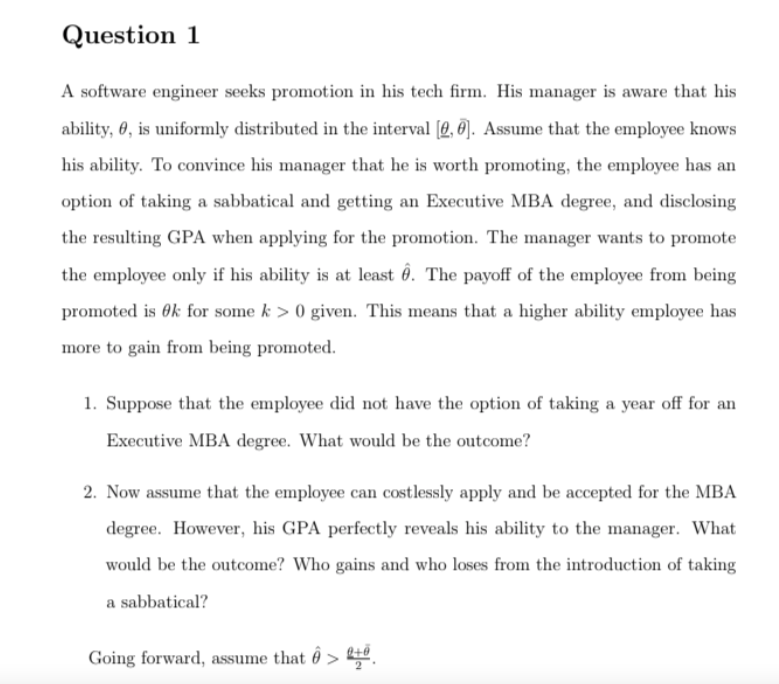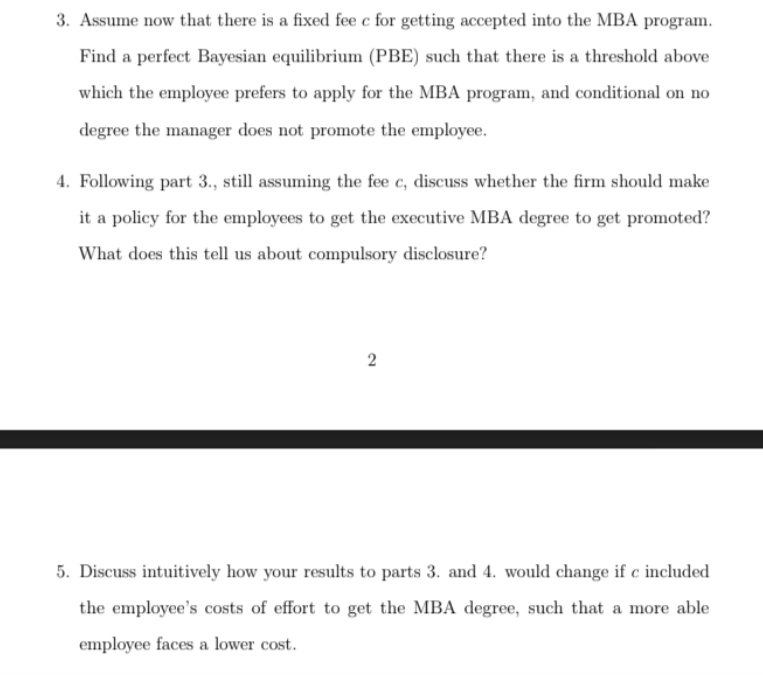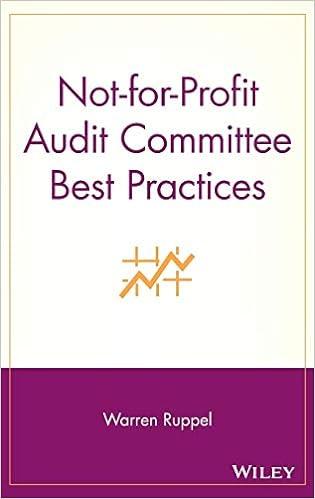

A software engineer seeks promotion in his tech firm. His manager is aware that his ability, , is uniformly distributed in the interval [,]. Assume that the employee knows his ability. To convince his manager that he is worth promoting, the employee has an option of taking a sabbatical and getting an Executive MBA degree, and disclosing the resulting GPA when applying for the promotion. The manager wants to promote the employee only if his ability is at least ^. The payoff of the employee from being promoted is k for some k>0 given. This means that a higher ability employee has more to gain from being promoted. 1. Suppose that the employee did not have the option of taking a year off for an Executive MBA degree. What would be the outcome? 2. Now assume that the employee can costlessly apply and be accepted for the MBA degree. However, his GPA perfectly reveals his ability to the manager. What would be the outcome? Who gains and who loses from the introduction of taking a sabbatical? Going forward, assume that ^>2+. 3. Assume now that there is a fixed fee c for getting accepted into the MBA program. Find a perfect Bayesian equilibrium (PBE) such that there is a threshold above which the employee prefers to apply for the MBA program, and conditional on no degree the manager does not promote the employee. 4. Following part 3., still assuming the fee c, discuss whether the firm should make it a policy for the employees to get the executive MBA degree to get promoted? What does this tell us about compulsory disclosure? 5. Discuss intuitively how your results to parts 3 . and 4. would change if c included the employee's costs of effort to get the MBA degree, such that a more able employee faces a lower cost. A software engineer seeks promotion in his tech firm. His manager is aware that his ability, , is uniformly distributed in the interval [,]. Assume that the employee knows his ability. To convince his manager that he is worth promoting, the employee has an option of taking a sabbatical and getting an Executive MBA degree, and disclosing the resulting GPA when applying for the promotion. The manager wants to promote the employee only if his ability is at least ^. The payoff of the employee from being promoted is k for some k>0 given. This means that a higher ability employee has more to gain from being promoted. 1. Suppose that the employee did not have the option of taking a year off for an Executive MBA degree. What would be the outcome? 2. Now assume that the employee can costlessly apply and be accepted for the MBA degree. However, his GPA perfectly reveals his ability to the manager. What would be the outcome? Who gains and who loses from the introduction of taking a sabbatical? Going forward, assume that ^>2+. 3. Assume now that there is a fixed fee c for getting accepted into the MBA program. Find a perfect Bayesian equilibrium (PBE) such that there is a threshold above which the employee prefers to apply for the MBA program, and conditional on no degree the manager does not promote the employee. 4. Following part 3., still assuming the fee c, discuss whether the firm should make it a policy for the employees to get the executive MBA degree to get promoted? What does this tell us about compulsory disclosure? 5. Discuss intuitively how your results to parts 3 . and 4. would change if c included the employee's costs of effort to get the MBA degree, such that a more able employee faces a lower cost








